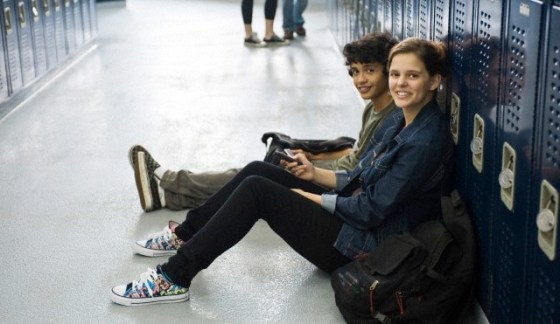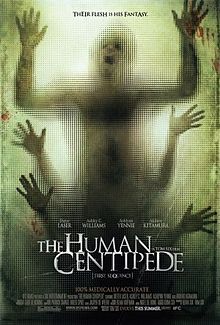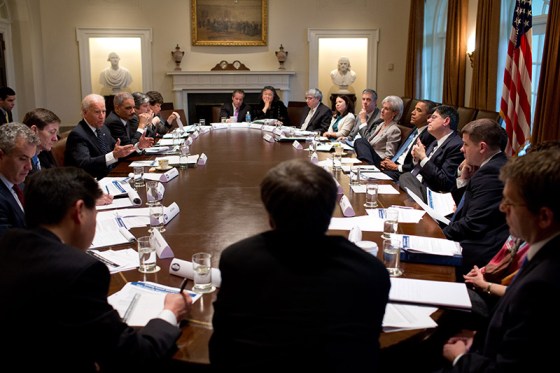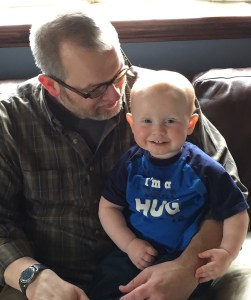Dear America:
Jeff Weise. Nidal Malik Hasan. Eric Harris and Dylan Klebold. Aaron Alexis. Ivan Lopez. Adam Lanza. Seung-Hui Cho. Mark Robert James Essex. James Holmes. Jiverly Wong. Michael McClendon. Scott Evans Dekraai. Omar Thornton. Robert Hawkins.
Could you pass a test matching these guys with the places and dates of their shooting sprees? Me neither. I’ve limited the list to cases after 2000 in the United States, and even at that I’ve missed some massacres. (For answers, check here.)

Fresh-faced high schoolers, minding their own business. (Credit: Odilon Dimier / PhotoAlto / Corbis)
On Wednesday, April 9th, sixteen-year-old Alex Hribal took a more primal approach to mass wagon-fixing by “stabbing wildly with two kitchen knives” at twenty-one teens and one security guard (cnn.com). The location was Franklin Regional Senior High School in Murrysville, Pennsylvania—just in case you want to make a flash card to study for any exams on violence in the future.
Don’t mistake my irreverence for a flippant attitude toward tragedy; I’m not dismissing the agony of the fallen, their loved ones, or the murderers and their families. My fellow Americans, I’ve had about enough of us! Good sense at its most basic level has left the national building, and our willingness to compromise for the sake of public safety has taken a nap from which it refuses to awaken.

“And so, my fellow Americans: ask not what your country can do for you, ask what you can do for your country.” White House portrait of John F. Kennedy by Aaron Shikler. (Credit: Wikipedia)
I voiced my frustration with US in a lengthy post last year after the Sandy Hook Elementary School massacre—first graders and adults riddled with a Bushmaster semi-automatic rifle, if you’ll recall. A few days ago it was a lone kid slicing away. The Associated Press reports that Hribal “doesn’t appear to have a history of misbehavior or any known mental problems.” My frustration this time isn’t with the Murrysville “enigma,” who will be prosecuted as an adult. In the weeks ahead the media will accompany shrinks into the young man’s psyche until the guessing game grows tiresome. Then, we’ll all move on to Justin Bieber’s next tantrum or Miley Cyrus’ next twerk. In a month or two, someone will lash out, killing or injuring another dozen or two, and we’ll do what we always do: scratch our heads, look for behaviors foretelling violence, and ask what can be done to prevent such a horror from happening again.

All right, no running on school property, and nobody gets hurt! (Credit: Wikimedia Commons)
I can’t take it anymore! We—you and me—are insufferably, embarrassingly full of crap. We mean well. Our hearts are in the right place. The trouble is, our brains have slumped into a stupor of denial. Example: WSEE television news (CBS) in Erie, Pennsylvania, hit me with the following viewers’ poll the evening after the Murrysville stabbings: “Which of these is the best approach for keeping kids safe in our schools?
- metal detectors at entrances
- cops in the hallways
- training to identify problem kids
- homeschooling”
Homeschooling? Really? If this isn’t waving the white flag, I don’t know what is. Sure, the poll here is sincere, but come on. Every time a bunch of innocents bleed, we engage in flaccid Monday-morning quarterbacking and half-assed introspection. We wring our hands, look at the ground, sigh, and worry the change in our pockets. Why are we at such a loss? Because serious, effective steps to reduce explosive, indiscriminate violence require more heroic honesty and moxie than we Americans possess. The truth is, we’ve surrendered to the worst angels of our nature and followed them down dark, destructive paths so far that we’ve forgotten what the gentle light of sanity looks like. Consider:
- Video game sales in the United States for 2013 totaled $15.39 billion (joystiq.com). In the top ten of sales are Grand Theft Auto V; Call of Duty: Ghosts; Assassin’s Creed IV: Black Flag; and The Last of Us (thefiscaltimes.com). We’re talking about killions of games being played by teenagers, with the activity being essentially this: sneak around and blow people (or zombies) away. So, let’s review: countless young people spend relaxing evenings rehearsing mass murder via convincing media—from a first-person point of view.
- When those little ones and brave adults got cut down at Sandy Hook Elementary in Advent of 2012, Americans of good sense figured that at long, sad last, something definitive would be done about crazy weapons falling into the hands of troubled souls. Sure, ramping up gun control measures after weapons already populated millions of homes would have amounted to closing the barn door after the horses had galloped off, but at least we could have tried to limit the scourge. Even then we Americans, at least as represented by our elected officials, lacked resolve and stamina. Twenty of our children were taken away in minutes, along with six adults trying to protect them, and still our collective will was trodden under foot by thuggish lobbying and political cowardice. God forbid a congressman or senator should piss off Wayne LaPierre.
- As if real and mimicked slaughter aren’t terrible enough, two films in recent years raise the bar on gore. James Wan’s 2004 film Saw includes a delicious scene in which a young guy has sixty seconds to dig a key out from behind his eyeball or a mask of nails called a Venus Fly Trap will snap shut on his face. I won’t ruin it for you. Meanwhile, Tom Six’s 2009 tour de force, The Human Centipede, has three young adults sewn together, arse-hole to pie-hole. What message can be found in such leisurely matinees? Rob Zombie, who remade Halloween in 2007, was candid when he said in a vanityfair.com interview, “I don’t think my movies have a lesson. Or if they do, I guess it’s that it’s a f—ed up world and you’re probably f—ed too.” Edifying, huh?

Theatrical release poster. I suppose Zombie has a point. (Credit: Wikipedia)
Can there be any doubt that the Constitution has become a document to exploit rather than a treasure entrusted to us for the sake of freedom-loving people everywhere? Sadly, our stewardship of the Founding Fathers’ labor and risk often deteriorates into spats over freedom of speech and the right to bear arms.
Let’s be clear—and brief: Roadstar Games wasn’t motivated by free speech in 2011 when its Modern Warfare 3 grossed $775,000,000 in its first five days on the market. Rob Zombie admits that the First Amendment isn’t on his mind. And anybody who argues that Benjamin Franklin or Thomas Jefferson would condone the ownership and abuse of the weapons on steroids available today is engaged in somnambulistic thinking. There’s a difference between words and actions protected by the Constitution and words and actions hiding behind the Constitution.

A document that brings us together or divides us? (Credit: Wikipedia)
Those who use the Constitution as a cover for extravagant profit have played a part in creating a world where massacres are commonplace. I can hear the objection already: Okay, Coleman, prove it. It’s clear at this point that no evidence I could present would satisfy the Entertainment Software Association, for example, which offers this assurance: “The truth is, there is no scientific research that validates a link between computer and video games and violence. Instead, a host of respected researchers has concluded that there is no link between media violence and violent crime.” No link? None?
Today, filmmakers, video game manufacturers, gun zealots, and Washington suits are either unwittingly caught in the gravitational pull of personal rights over collective responsibilities or gleefully scamming a Constitution that depends on the best intentions of the people. In any case, the situation is a wretched shame. A controller and screen invite us to simulate savagery, and we’re all one DVD away from witnessing the most perverted tortures imaginable. One result among many: the killing or maiming of innocent folks in public places is officially on the menu of possible, though extreme, responses to private despair and rage. The world is now thus.
But enough of this line of complaint. My letter to America is directed to those of us who aren’t consumed by the daily cluster of governance or who produce mad visions of media violence. Let’s wake up from our collective nap of denial and feigned shock. Are any of us actually surprised at the mass killing du jour? And do we as individual citizens think long and hard about how we can keep kids safe in school? Be honest, now.

Not all napping is cute. Come on, let’s wake up. (Credit: Hal Beral / Corbis)
Shooting imaginary people (or enemies or zombies or whatever) until they’re a scattering of juicy, red mush is not a benign pastime. Automatic weapons with well-endowed magazines are readily available to those lost souls who decide to live out the marksmanship they’ve practiced over and over. Films that display nothing but sadistic cruelty plant toxic seeds. Add these realities up, and we have a distressing American truth: our commitment to individual rights is massacring our sense of responsibility to each other.
And this truth is costly. Remember December 14, 2012, when Adam Lanza cut loose in Newtown, Connecticut? Between that date and December 31, 2013, Slate.com estimates that 12,042 or more people have died at the wrong end of a gun. Slate has now stopped counting, but you can bet folks minding their own business will keep getting shot or stabbed, alone or in klatches.

White House meetings are great, like this one after Sandy Hook, but no number of politicians can make us change our hearts. (Credit: Wikimedia Commons)
Like you, I’m grieved and angry. But surprised? Please. Enough already! Armed guards, metal detectors, and psychologist can’t save us from ourselves. (Neither can legislation: point taken.) I pray that we can change, stop strangling the Constitution, and love our country and neighbor as much as we love our freedom.
Love,
John Coleman









